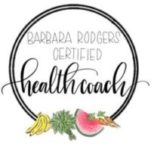When it comes to adding fat into our diets, many people are skeptical or confused. That’s not surprising, given the low fat craze of the 90’s where we were told that fat is bad for you and that we should limit our intake of it. Many food manufacturers latched on to this notion and developed hundreds of different food products that had less fat than their original counterparts, or similar products. I am sure that many of you are aware of them, as they became popular fast (think Snack Well Cookies). The problem with low fat food however, is two-fold. First of all, fat plays a big part in how a food tastes. When the fat content of a food is reduced, or eliminated, something has to take the place of it to make it taste better. Often times, sugar or other chemicals and preservatives are added to these food products to make them tastier, which many consumers overlook, or may not aware of. This is how some people have got in trouble with weight gain over time, especially when focusing solely on low fat foods. The other problem with a low fat, or no fat diet, is that the thinking, that we all need to reduce our fat intake to avoid problems with heart disease and cholesterol, etc., was all wrong.
In an interview with Dr. Mark Hyman, in the article, Fat’s Not The Enemy, Hyman writes,”‘This whole idea is scientifically untrue. In fact, science shows just the opposite. The reality is that the more fat you eat, the more fat you lose and the better your body functions.’ Hyman who is an American physician, author and scholar, promotes this theory further with his most recent book, Eat Fat, Get Thin: Why The Fat We Eat Is The Key To Sustained Weight Loss And Vibrant Health. The book focuses on incorporating high-fat, plant-based foods into the diet for a healthy life.”¹
Our bodies need fat to function properly and perform peak functions. Instead of focusing on low fat, or no fat, where we often look at the total fat of food, we need to look at both good fats and bad fats, which affect our bodies differently. While there are a variety of fats including saturated fat, monosaturated fat, polyunsaturated fat and transfats, it is probably easiest for consumers to focus on the monosaturated fats (MUFAS), as these are good fats which are good for our bodies and are plant based. These healthy fats can be found in a variety of whole foods including avocados, nuts, seeds, olives and dark chocolate.

Other healthy fats can be found in some fish, coconut oil, olive oil, etc. Trans-fats, on the other hand, are not so good and can be found in some animals and animal products such as milk. Other trans-fats are man-made and are actually created by an industrialization process which makes vegetable oil into a more solid form than some other oils available. This type of oil is called partially hydrogenated oil and is found in many processed foods, (think Dorito’s, potato chips, crackers, and many other food products).

We all should do our best to avoid hydrogenated oils, as they are bad for our body. While eating them on occasion is probably OK, it is best to replace them with more healthy fat options for a healthier diet and life style.
Thanks for reading!
Barb
Source:
¹Singh, Pooja. “Fat’s Not the Enemy: Mark Hyman.” Http://www.livemint.com/. N.p., 19 Sept. 2016. Web. 20 Sept. 2016.











Article Comments